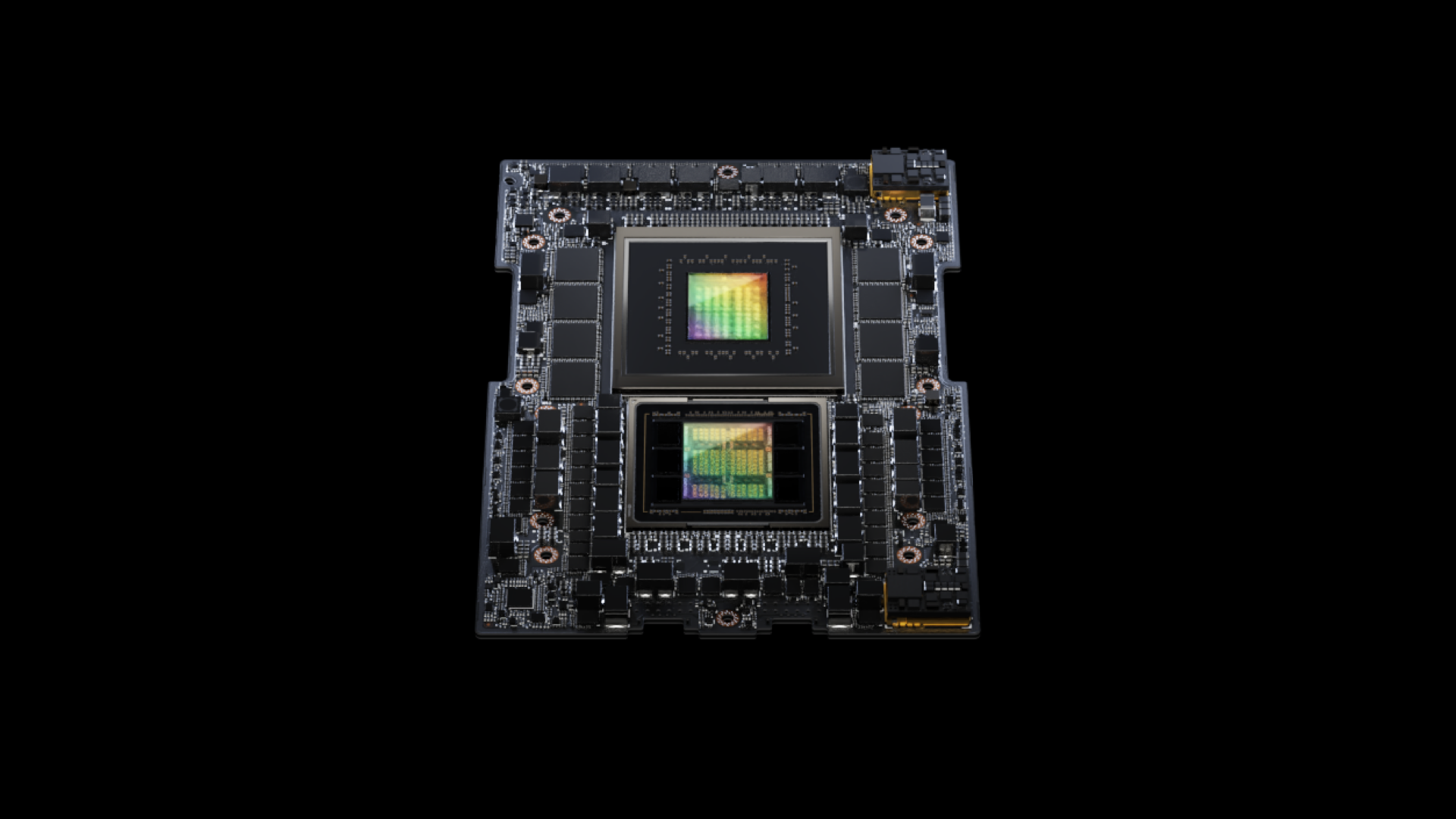Exclusive: Nvidia's fastest AI chip ever is finally available for preorder — and you can get the GH200 for as little as $4.99 per hour
The new AI superchip promises enhanced LLM training and inference

Nvidia's most powerful AI chip to date, the GH200 Grace Hopper Superchip, is now available for pre-order. It is designed for heavy generative AI workloads, such as Large Language Models like ChatGPT.
The GH200 superchip boasts a high-bandwidth connection between the Grace CPU and Hopper GPU, which Nvidia says allows for a tenfold increase in performance for applications running terabytes of data.
The company claims this boost in power and efficiency could enable scientists and researchers to discover unprecedented solutions to some of the world’s most complex problems, but businesses stand to benefit from the GH200 too, which offers enhanced LLM training and inference.
Available to reserve now
One of the key features of the GH200 is the power of its coherent memory. The NVIDIA NVLink-C2C interconnect provides 900GB/s of bidirectional bandwidth between CPU and GPU - seven times the performance found in accelerated systems. This connection offers unified cache coherence with a single memory address space that combines system and HBM GPU memory, simplifying programmability.
The GH200's specifications are unquestionably impressive and should help Nvidia continue its dominance in the AI hardware space. The Grace CPU boasts 72 cores, with a CPU LPDDR5X bandwidth of up to 500 GB/s. The GPU HBM bandwidth is 4TB/s HBM3, with an NVLink-C2C bandwidth of 900GB/s total, 450GB/s per direction. Its CPU LPDDR5X capacity is 480GB, while the GPU HBM capacity is 96GB HBM3.
With an introductory price of just $4.99 per hour, the GH200 is available to reserve on Vultr now. Nvidia previously stated that it expects system makers to make the first models based on Grace Hopper available in Q2 of 2024.
More from TechRadar Pro
- Nvidia unveils upgraded chip to power the next gen of AI
- Nvidia is powering a mega Tesla supercomputer powered by 10,000 H100 GPUs
- Got heavy workloads of your own? These are the best workstations you can get right now
Are you a pro? Subscribe to our newsletter
Sign up to the TechRadar Pro newsletter to get all the top news, opinion, features and guidance your business needs to succeed!

Wayne Williams is a freelancer writing news for TechRadar Pro. He has been writing about computers, technology, and the web for 30 years. In that time he wrote for most of the UK’s PC magazines, and launched, edited and published a number of them too.